Vanguard EZCT-2000 User Manual
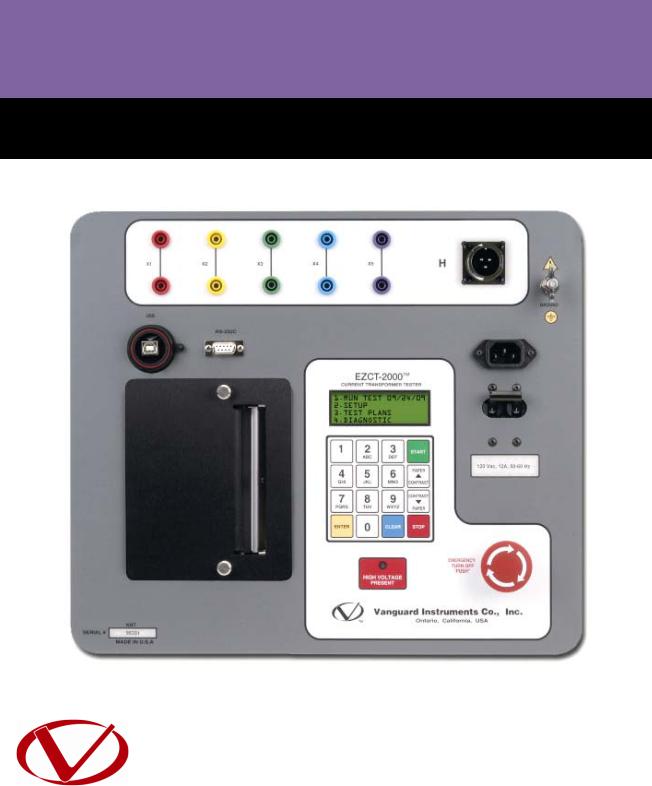
EZCT-2000TM
DIGITAL CURRENT-TRANSFORMER TESTER
USER’S MANUAL
Vanguard Instruments Company, Inc.
1520 S. Hellman Ave.
Ontario, California 91761, USA
TEL: (909) 923-9390 |
March 2014 |
FAX: (909) 923-9391 |
Revision 3 |
|
|

EZCT-2000 USER’S MANUAL REV 3
SAFETY SUMMARY
FOLLOW EXACT OPERATING PROCEDURES
Any deviation from the procedures described in this User’s Manual may create one or more safety hazards, may damage the EZCT-2000, or cause errors in the test results. Vanguard Instruments Company, Inc. assumes no liability for unsafe or improper use of the EZCT-2000.
All safety precautions provided in this manual must be observed during all phases of testing including test preparation, test lead connection, actual testing, and test lead disconnection.
SAFETY WARNINGS AND CAUTIONS
The EZCT-2000 can produce a voltage up to 2,000 Vac that can cause severe injury and/or equipment damage. Due to this reason, the EZCT-2000 shall be used only by trained operators.
The EZCT-2000’s X output terminals are rated to 2,000 Vac working voltage. Any voltage above 2,000 Vac will damage the input circuitry. Please see section 3.2 for further information.
All devices under test shall be off-line and fully isolated. Never attempt to test any current transformer still connected to a circuit. All current transformer terminals shall be isolated before conducting any test with the EZCT-2000.
Always ground the EZCT-2000 to a substation ground before connecting the test cables to a transformer.
DO NOT MODIFY TEST EQUIPMENT
To avoid the risk of introducing additional or unknown hazards, do not install substitute parts or perform any unauthorized modification to any EZCT-2000 test unit. To ensure that all designed safety features are maintained, it is highly recommended that repairs be performed only by Vanguard Instruments Company factory personnel or by an authorized repair service provider. Unauthorized modifications can cause safety hazards and will void the manufacturer’s warranty.
WARNING
Do not remove test leads during a test. Failure to heed this warning can result in electrical shock to personnel and damage to the equipment.
i

REV 3 EZCT-2000 USER’S MANUAL |
|
|
|
TABLE OF CONTENTS |
|
CONVENTIONS USED IN THIS DOCUMENT ....................................................................... |
1 |
|
1.0 |
INTRODUCTION.................................................................................................................... |
2 |
1.1 |
General Description and Features ................................................................................... |
2 |
1.2 |
Furnished Accessories...................................................................................................... |
3 |
1.3 |
Technical Specifications ................................................................................................... |
4 |
1.4 |
EZCT-2000 Controls and Indicators.................................................................................. |
5 |
2.0 |
PRE-TEST SETUP ................................................................................................................... |
7 |
2.1 |
Operating Voltages .......................................................................................................... |
7 |
2.2 |
LCD Screen Contrast Control............................................................................................ |
7 |
2.3 |
Printer Paper Control....................................................................................................... |
7 |
2.4 |
Printer Paper.................................................................................................................... |
7 |
3.0 |
OPERATING PROCEDURES ................................................................................................... |
9 |
3.1 |
EZCT-2000 Cable Connections ......................................................................................... |
9 |
3.2 |
EZCT-2000 X Input Voltage Warning.............................................................................. |
11 |
3.3 |
Performing Tests............................................................................................................ |
12 |
3.3.1. Entering Test Record Header Information ............................................................. |
12 |
|
3.3.2. Performing Resistance, Excitation, and Ratio Tests ............................................... |
15 |
|
3.4 |
Working With Test Records ........................................................................................... |
24 |
3.4.1. Restoring and Printing a Test Record From Flash EEPROM ................................... |
24 |
|
3.4.2. Printing a Restored Test Record............................................................................. |
27 |
|
3.4.3. Printing a Directory of Test Records Stored in the EZCT-2000’s Memory ............. |
28 |
|
3.4.4. Erasing Test Records From the Flash EEPROM ...................................................... |
30 |
|
3.5 |
Working With Test Plans................................................................................................ |
32 |
3.5.1. Extracting the Test Plan From a Test Record ......................................................... |
32 |
|
3.5.2. Printing a Directory of Test Plans Stored in the EZCT-2000’s Memory.................. |
34 |
|
3.5.3. Printing a Test Plan................................................................................................. |
36 |
|
3.5.4. Erasing Test Plans From the Flash EEPROM........................................................... |
38 |
|
3.5.5. Loading a Test Plan from the EZCT-2000’s Flash EEPROM..................................... |
40 |
|
3.5.6. Running a Test Using a Loaded Test Plan............................................................... |
41 |
|
3.5.7. Unloading a Test Plan from the Working Memory ................................................ |
44 |
|
4.0 |
CHANGING SETUP PARAMETERS ....................................................................................... |
45 |
4.1 |
Setting the Knee Point Marker ...................................................................................... |
45 |
4.2 |
Selecting the Buried CT in Transformer Delta Option ................................................... |
47 |
4.3 |
Setting the Clock ............................................................................................................ |
50 |
5.0 DIAGNOSTICS, VERIFICATION, AND TROUBLESHOOTING ................................................. |
51 |
|
5.1 |
Performing a Diagnostics Test ....................................................................................... |
51 |
5.2 |
Verifying the EZCT-2000’s Vx Sense Circuit Using an External Meter............................ |
53 |
5.3 |
Verifying the EZCT-2000’s Ix Sense Circuit Using an External Meter............................. |
54 |
5.4 |
Quickly Verifying the EZCT-2000’s Turns Ratio Circuit .................................................. |
55 |
5.5 |
Troubleshooting Guide .................................................................................................. |
56 |
6.0 Appendix A - Calculating Turns Ratio on a Shunt Reactor................................................. |
57 |
|
ii |
|
|

EZCT-2000 USER’S MANUAL REV 3
LIST OF TABLES |
|
Table 1. EZCT-2000 Technical Specifications .................................................................................. |
4 |
Table 2. Functional Descriptions of EZCT-2000 Controls and Indicators........................................ |
6 |
Table 3. Descriptions of Tabulated Test Results Elements........................................................... |
22 |
Table 4. Description of Test Plan Elements .................................................................................. |
37 |
LIST OF FIGURES |
|
Figure 1. EZCT-2000 Controls and Indicators.................................................................................. |
5 |
Figure 2. Typical EZCT-2000 Excitation and Ratio Test Cable Connection...................................... |
9 |
Figure 3. Bushing CT Connection on Delta Transformer .............................................................. |
10 |
Figure 4. Bushing CT Connection on Y Transformer ..................................................................... |
10 |
Figure 5. Sample CT Name Plate................................................................................................... |
11 |
Figure 6. Typical EZCT-2000 Tabulated Report Printout............................................................... |
21 |
Figure 7. Typical EZCT-2000 Graphic Report................................................................................. |
23 |
Figure 8. Typical EZCT-2000 Graphic Report with Multiple Plot Curves....................................... |
23 |
Figure 9. Typical Internal Test Record Directory Printout ............................................................ |
29 |
Figure 10. Typical EZCT-2000 Flash EEPROM Test Plan Directory Printout.................................. |
35 |
Figure 11. Typical Test Plan Printout ............................................................................................ |
37 |
Figure 12. Graphic Report Showing Knee Point Marker............................................................... |
46 |
Figure 13. Buried CT in a Delta Transformer Illustration 1 ........................................................... |
48 |
Figure 14. Buried CT in a Delta Transformer Illustration 2 ........................................................... |
48 |
Figure 15. EZCT-2000 Vx Verification Test Connections ............................................................... |
53 |
Figure 16. EZCT-2000 Ix Verification Test Connections................................................................. |
54 |
Figure 17. EZCT-2000 Turns Ratio Verification Test Connections ................................................ |
55 |
Figure 18 ....................................................................................................................................... |
57 |
Figure 19 ....................................................................................................................................... |
58 |
Figure 20 ....................................................................................................................................... |
59 |
Figure 21 ....................................................................................................................................... |
60 |
Figure 22 ....................................................................................................................................... |
61 |
Figure 23 ....................................................................................................................................... |
62 |
Figure 24 ....................................................................................................................................... |
63 |
Figure 25 ....................................................................................................................................... |
63 |
iii
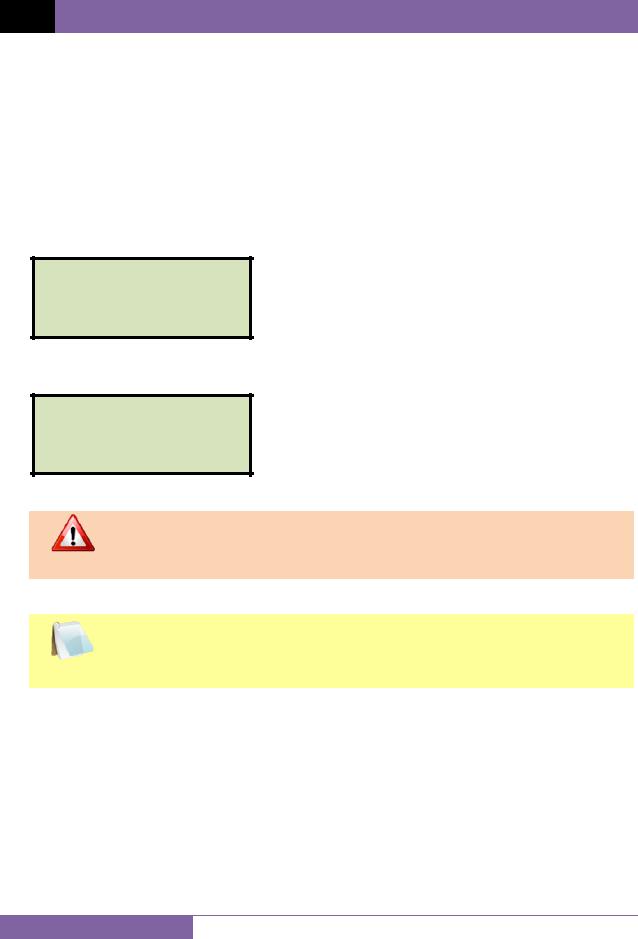
REV 3 EZCT-2000 USER’S MANUAL
CONVENTIONS USED IN THIS DOCUMENT
This document uses the following conventions:
•A key or switch on the EZCT-2000 is indicated as [KEY] and [SWITCH].
•Menu options are referenced as (MENU OPTION).
•Screen and menu names are referenced as “SCREEN/MENU NAME”.
•The terms “test record” and “test shot” are used interchangeably.
•EZCT-2000 LCD screen output is shown as:
1.OPTION 1
2.OPTION 2
3.OPTION 3
4.OPTION 4
•When instructions are provided, the menu item that should be selected is shown in bold as shown below (option 3 should be selected):
1.OPTION 1
2.OPTION 2
3.OPTION 3
4.OPTION 4
•Warning messages are indicated as:
Warning message
WARNING
•Important notes are indicated as:
Note details
NOTE
1

EZCT-2000 USER’S MANUAL REV 3
1.0INTRODUCTION
1.1General Description and Features
The EZCT-2000 is Vanguard’s second-generation microprocessor-based current transformer test set. The EZCT-2000 can perform the current transformer (CT) excitation test, measure the CT winding resistance and CT current-ratio automatically. All of the EZCT-2000’s test leads can be connected to the CT output terminals (X1, X2, X3, X4 and X5), eliminating the need for lead switching during testing. Test voltage output is automatically raised and lowered by the EZCT2000 without any operator intervention. With up to 2000 Vac excitation test voltage available, the EZCT-2000 can easily perform excitation tests on very large CT’s.
Excitation Test
The CT excitation test is performed using the ANSI/IEEE C57.13.1, IEC 60044-1 test method. The AC test voltage range for the CT excitation test (50 Vac, 300 Vac, 500 Vac, 1200 Vac or 2000 Vac) can be selected, and then the test voltage is raised and lowered automatically by the EZCT2000. The excitation test voltage and current data is collected and stored in the unit’s internal memory. Any of the 10 possible combinations of X1 to X5 can be tested since all of the unit’s test leads can be connected to all of the CT output terminals at the same time. Up to 10 excitation tests can be stored in one record. Once the test is completed, test results can be printed and excitation curves can be plotted on the built-in 4.5-inch wide thermal printer.
CT Ratio and Polarity Test
The EZCT-2000 determines the CT current-ratio using the ANSI/IEEE C57.12.90 measurement method. An AC test voltage is applied on any two terminals of the CT (X1 to X5), and the induced voltage is measured through the CT’s H1 and H2 terminals. The CT current-ratio is displayed on the screen and stored in memory. The current-ratio measuring range is from 0.8 to 5,000 to 1. The CT winding polarity is displayed as a “+” sign (in-phase) or a “-” sign (out-of- phase) and is annotated with the phase angle in degrees.
CT Winding Resistance Test
The EZCT-2000 can also measure the DC resistance of the CT winding under test. The DC winding resistance measuring range is from 100 micro-ohms to 10 ohms.
User Interface and Display
The EZCT-2000 features a back-lit LCD screen (4 lines by 20 characters) that is viewable in both bright sunlight and low-light levels. A rugged, alpha-numeric, membrane keypad is used to control the unit.
Built-in Thermal Printer
A built-in 4.5-inch wide thermal printer can print the current transformer test report and plot the excitation curves.
2

REV 3 EZCT-2000 USER’S MANUAL
Test Record Header Information
Test record header information can include the company name, substation name, circuit ID, manufacturer, CT serial number, operator’s name and test record comments. In addition to the test record header, a 20-character test description for each test in the record (10 tests per record) can also be entered.
Internal Test Record Storage Capacity
The EZCT-2000 can store up to 140 test records in Flash EEPROM. Each test record may contain up to 10 excitation curves, current-ratio readings, polarity and DC resistance readings. Test records can be recalled and printed on the built-in thermal printer.
Internal Test Plan Storage Capacity
The EZCT-2000 can store up to 128 CT test plans in Flash EEPROM. A test plan defines the excitation test voltage and current range selection, CT nameplate ratio, and CT winding terminals (X1 to X5) for each of the tests. Up to 10 test definitions can be stored per test plan. The use of a test plan greatly simplifies the CT testing process; the EZCT-2000 is connected to the CT terminals and a test plan is simply selected and run. Test plans can be created on the EZCT-2000 itself or created on a PC and downloaded to the EZCT-2000 via the unit’s built-in RS232C or USB interfaces.
Computer Interface
The EZCT-2000 can be used as a stand-alone unit or can be computer-controlled via the built-in RS-232C or USB interfaces. A Windows® XP/Vista-based Current Transformer Analysis software application is provided with each EZCT-2000. This software can be used to retrieve test records from the EZCT-2000, create test plans, download test plans to the EZCT-2000, and can also be used to run CT tests from the PC. Tabulated test records can be exported in Microsoft® Excel format.
1.2Furnished Accessories
The EZCT-2000 comes furnished with the following:
•1 Power Cord
•5 20-foot X Cable Sets
•1 35-foot H Cable Set
•One RS-232C serial cable
•One USB cable
•Ground Cables
•Duffel bag
•Transportation Case
3
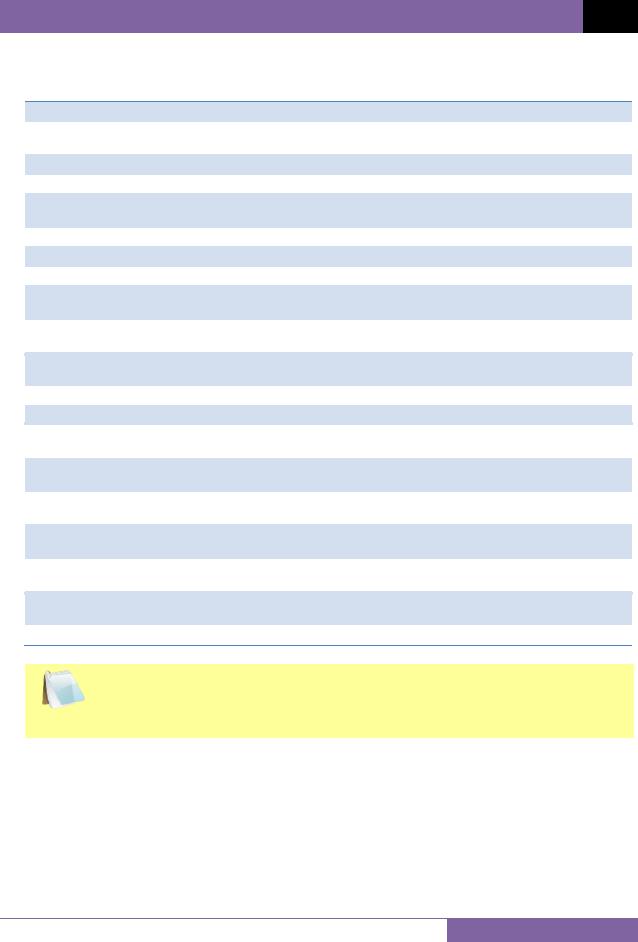
EZCT-2000 USER’S MANUAL REV 3
1.3Technical Specifications
Table 1. EZCT-2000 Technical Specifications
TYPE Portable current-transformer test set
PHYSICAL SPECIFICATIONS 16.8”W x 12.6”H x 14”D (42.7 cm x 32.0 cm x 35.6 cm); Weight: 56 lbs (25.4 Kg)
INPUT POWER 100 – 120 Vac or 200 – 240 Vac (factory pre-set), 50/60 Hz
MEASUREMENT METHOD ANSI/IEEE C57.12.90, IEC 60044-1 and ANSI/IEEE C57.13.1 standards
TEST OUTPUT VOLTAGES 0 – 50 Vac @ 10A max, 0 – 300 Vac @ 10A max, 0 – 500 Vac @ 5A max 0 – 1200 Vac @ 2A max, 0 – 2000 Vac @ 1.2 A max
VOLTAGE READING RANGE 0 – 2,200 Vac; Accuracy: ±1.0% of reading, ±1 volt
CURRENT READING RANGE 0 – 10A; Accuracy: ±1.0% of reading, ±0.02A
CURRENT-RATIO RANGE 0.8 – 999: 0.1%, 1000 – 1999: 0.3%, 2000 – 5000: 1%
PHASE ANGLE 0 – 360 degrees; Accuracy: ±1.0 degree
MEASUREMENT
RESISTANCE READING 100 micro-ohms – 10 ohms; Accuracy: 2% of reading, ±1 count, ±10 μ-
RANGE ohms
DISPLAY Back-lit LCD Screen (20 characters by 4 lines); viewable in bright sunlight and low-light levels
PRINTER Built-in 4.5-inch wide thermal printer
COMPUTER INTERFACES One RS-232C port (115k baud), One USB port
PC SOFTWARE Windows® XP/Vista-based CT Analysis software is included with purchase price
INTERNAL TEST RECORD Stores 140 test records. Each test record may contain up to 10 sets of STORAGE excitation, resistance and ratio data
INTERNAL TEST PLAN Stores 128 test plans. Each test plan can store 10 excitation test voltage STORAGE and current settings
SAFETY Designed to meet UL 61010A-1 and CAN/CSA C22.2 No. 1010.1-92 standards
ENVIRONMENT Operating: -10˚ to 50˚ C (15˚F to +122˚ F); Storage: -30˚ C to 70˚ C (-22˚F to +158˚ F)
CABLES Five 20-foot X cable sets, One 35-foot H cable set, power cord, One cablecarrying duffel bag
WARRANTY One year on parts and labor
The above specifications are valid at nominal operating voltage and at a temperature of 25°C (77°F). Specifications may change without prior notice.
NOTE
4
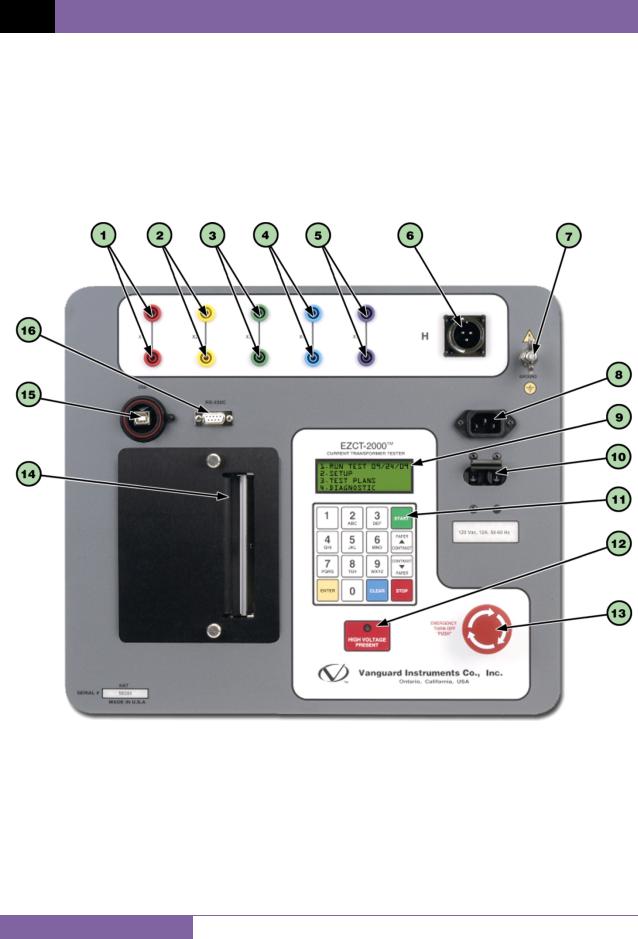
REV 3 EZCT-2000 USER’S MANUAL
1.4EZCT-2000 Controls and Indicators
The EZCT-2000’s controls and indicators are shown in Figure 1 below. A leader line with an index number points to each control and indicator, which is cross-referenced to a functional description in Table 2. The table describes the function of each item on the control panel. The purpose of the controls and indicators may seem obvious, but users should become familiar with them before using the EZCT-2000. Accidental misuse of the controls will usually cause no serious harm. Users should also be familiar with the safety summary found on the front page of this User’s Manual.
Figure 1. EZCT-2000 Controls and Indicators
5

EZCT-2000 USER’S MANUAL REV 3
Table 2. Functional Descriptions of EZCT-2000 Controls and Indicators
|
Item |
|
Panel Markings |
|
Functional Description |
|
|
Number |
|
|
|||
|
|
|
|
|
Current transformer excitation voltage connectors. Each set of connectors |
|
|
1-5 |
|
X1, X2, X3, X4, X5 |
|
contains a test voltage connector and sensing connector. The EZCT-2000’s X |
|
|
|
|
output terminals are rated to 2000 Vac working voltage. Any voltage above |
|||
|
|
|||||
|
|
|
|
|
2000 Vac will damage the input circuitry. |
|
6 |
|
H |
|
Current transformer primary input test cable connector. |
||
|
|
|
|
|
||
|
7 |
|
GROUND |
|
Grounding stud. |
|
|
|
|
|
|
|
|
8AC receptacle.
9Back-lit graphic LCD screen (128 x 64); viewable in bright sunlight and low light levels.
10 |
|
110-120 Vac, |
Power switch with built-in circuit breaker. |
|
|
12A, 50-60Hz |
|
||
|
|
|
|
|
|
11 |
|
|
Rugged, alpha-numeric membrane keypad |
12 |
|
HIGH VOLTAGE |
LED warning indicator that is illuminated when high voltage is present. |
|
|
PRESENT |
|
||
|
|
|
|
|
|
13 |
|
EMERGENCY |
Emergency turn off switch. |
|
|
TURN OFF |
|
|
|
|
|
“PUSH” |
|
14 |
|
|
Built-in 4.5-inch wide thermal printer. |
|
|
15 |
|
USB |
USB PC interface. |
16 |
|
RS-232C |
RS-232C PC interface. Baud rate is set for 115KB, 8 data bits, 2 stop bits. |
|
6

REV 3 EZCT-2000 USER’S MANUAL
2.0PRE-TEST SETUP
2.1Operating Voltages
The EZCT-2000’s operating voltage is preset at the factory for 100-120 Vac, 50/60 Hz or 200-240 Vac, 50/60 Hz.
2.2LCD Screen Contrast Control
To increase the LCD screen contrast, press and hold the [PAPER Contrast] key for two seconds. Release the button when the desired contrast level has been reached.
To decrease the LCD screen contrast, press and hold the [PAPER Contrast] key for two seconds. Release the button when the desired contrast level has been reached.
2.3Printer Paper Control
To advance the thermal printer paper, press and release the [PAPER Contrast] key.
To retract the thermal printer paper, press and release the [PAPER Contrast] key.
2.4Printer Paper
The EZCT-2000’s built-in thermal printer uses 4.5-inch wide thermal paper for printing test results. To maintain the highest print quality and to avoid paper jams, the use of thermal paper supplied by Vanguard Instruments Company is highly recommended. Additional paper can be ordered from the following sources:
Vanguard Instruments Co, Inc.
1520 S. Hellman Avenue Ontario, CA 91761
Tel: 909-923-9390
Fax: 909-923-9391
Part Number: VIC TP-4 paper
BG Instrument Co.
13607 E. Trent Avenue Spokane, WA 99216 Tel: 509-893-9881 Fax: 509-893-9803
Part Number: VIC TP-4 paper
7
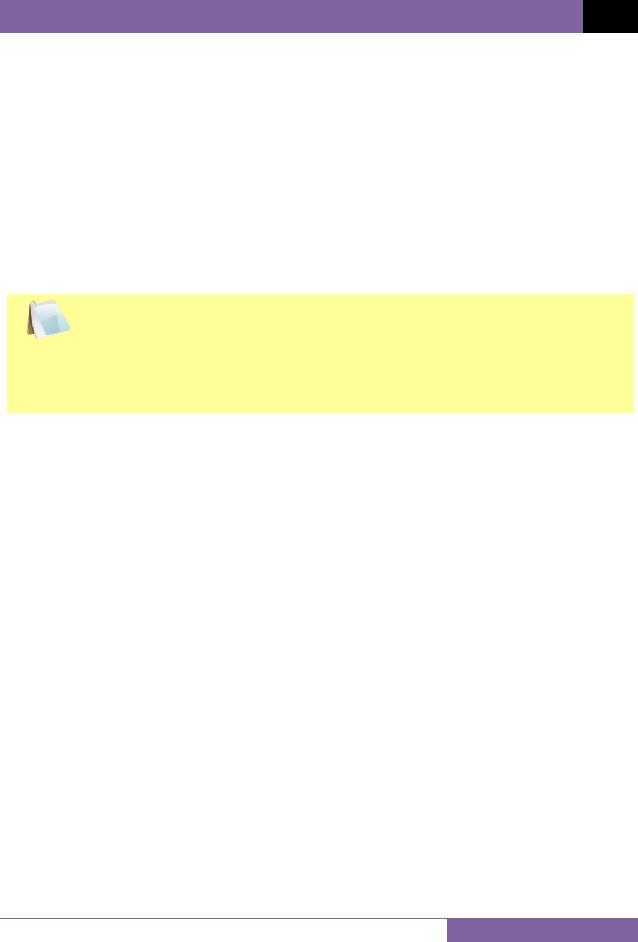
EZCT-2000 USER’S MANUAL REV 3
2.5Replacing the Thermal Printer Paper
The roll of thermal paper is housed inside a dispenser underneath the printer cover. To replace the paper, follow the steps below:
•Unscrew the two large printer cover screws and remove the printer cover.
•Remove the leftover thermal paper roll from the paper holder.
•Unroll the new thermal paper roll.
•Feed the thermal paper into the slot between the paper pocket and the rubber roller. The printer will automatically pull the paper under the thermal head.
•Place the paper roll into the paper holder.
•Lift the thermal head and align the thermal paper if necessary.
•Re-install the printer cover.
Thermal paper has a chemical coating on one side of the paper. This side should be facing the thermal print head. Incorrect paper loading may result in blank output on
the thermal paper.
NOTE
The thermal paper will show a red stripe to indicate that the roll is about to run out of paper.
2.6Computer Interface Ports
The EZCT-2000 features one USB and one RS-232C PC interface port. A Windows-based “Current Transformer Analysis” software application is supplied with the EZCT-2000. For further information, please see the software user’s manual.
8
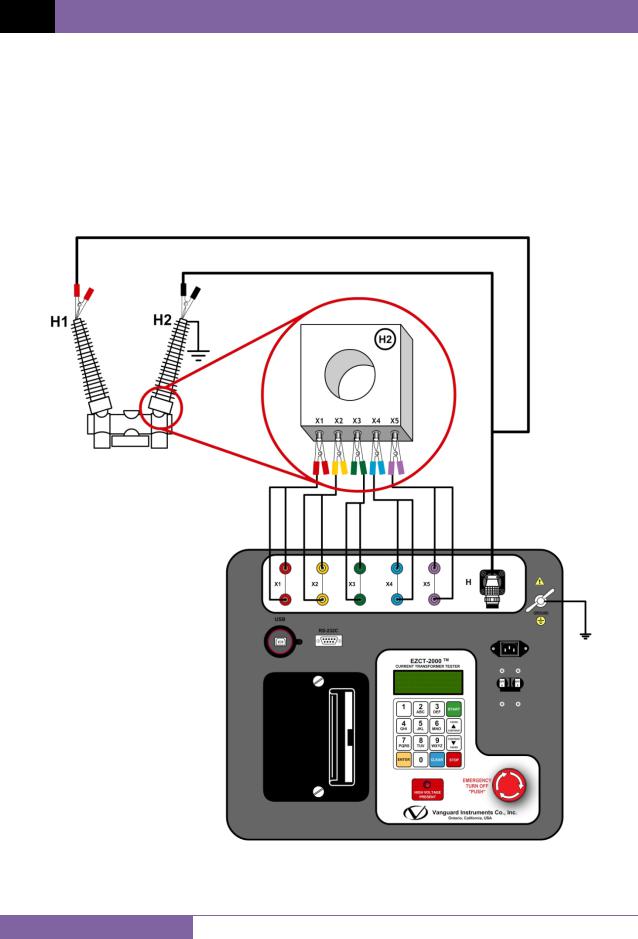
REV 3 EZCT-2000 USER’S MANUAL
3.0OPERATING PROCEDURES
3.1EZCT-2000 Cable Connections
Always connect the EZCT-2000 to the substation ground before connecting any test cables. The EZCT-2000 is supplied with five 20-foot X test cables and one 35-foot H cable. The X cable connections are required to run the current transformer excitation test. The H and X cable connections are required to run the transformer turns-ratio test. A typical excitation and ratio test connection is shown in Figure 2. Transformer bushing CT connections for Delta and Y transformers are shown in Figure 3 and Figure 4, respectively.
Figure 2. Typical EZCT-2000 Excitation and Ratio Test Cable Connection
9
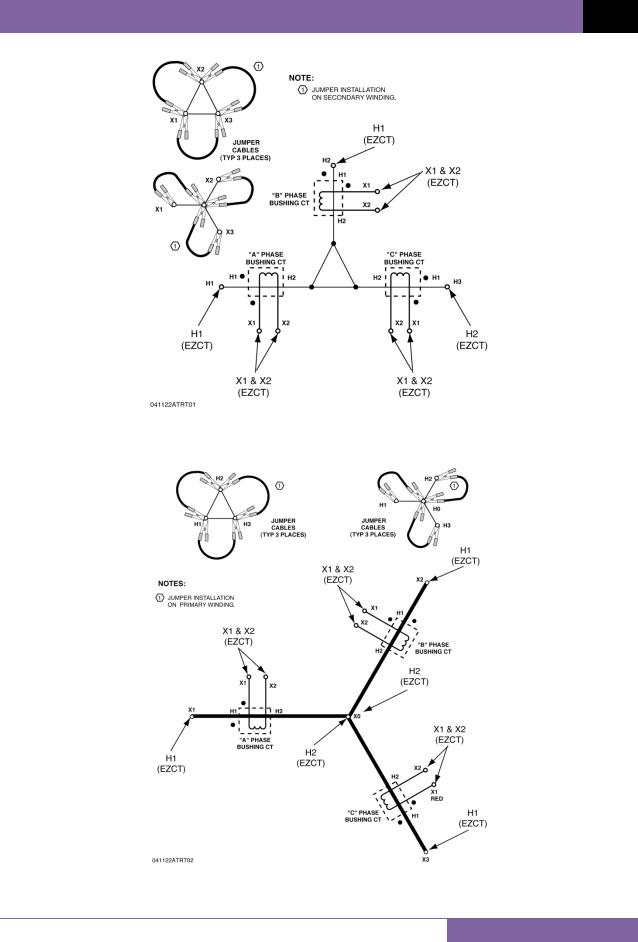
EZCT-2000 USER’S MANUAL REV 3
Figure 3. Bushing CT Connection on Delta Transformer
Figure 4. Bushing CT Connection on Y Transformer
10
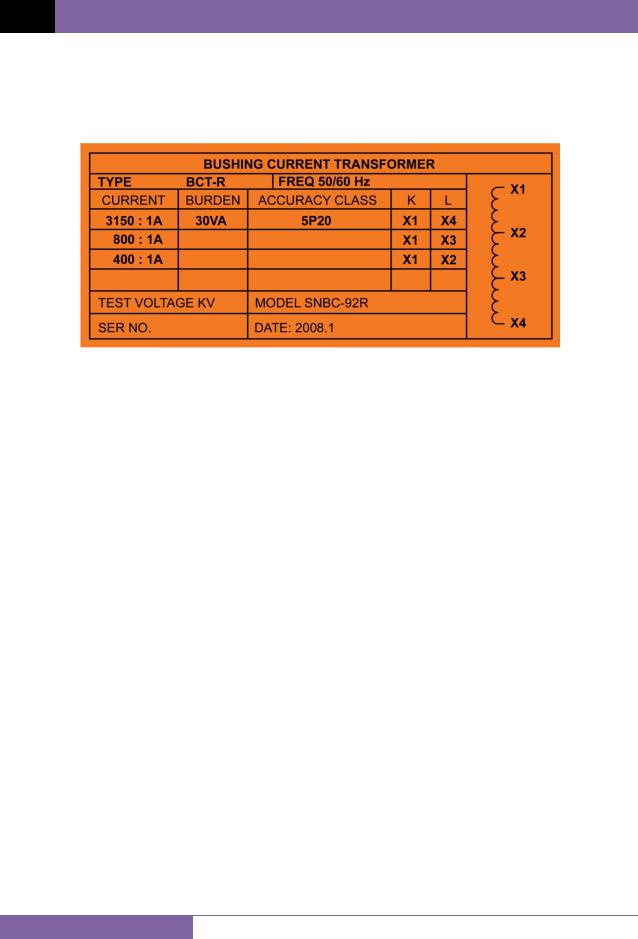
REV 3 EZCT-2000 USER’S MANUAL
3.2EZCT-2000 X Input Voltage Warning
The EZCT-2000 X output terminals are rated to 2,000 Vac working voltage. Any voltage present at these terminals above 2,000 Vac may damage the X sense circuitry, cause false readings, or both. An example of a typical situation where this may occur is shown in Figure 5 below.
Figure 5. Sample CT Name Plate
For the above example CT, the turns ratio between X1-X4 is 3150 to 1. The turns ratio between X1-X2 is 400 to 1. The turns ratio between X1-X4 and X1-X2 is 7.88 (3150/400). If a test voltage of 300 Vac is applied to the X1-X2 terminals, a voltage of 2,364 Vac (300 Vac x 7.88) will be induced at the X1-X4 terminals. If all the test leads are connected to the EZCT-2000 and the excitation test is performed on the X1-X2 terminals, the voltage induced at the X1-X4 terminals will exceed 2,000 Vac as the voltage across the X1-X2 terminals increases above 250 Vac. A “Flash-Over” condition may occur and damage the EZCT-2000. In this case, the user should only connect the X1-X2 leads and run its excitation test, then connect the X4 lead before running the X1-X4 excitation test.
11
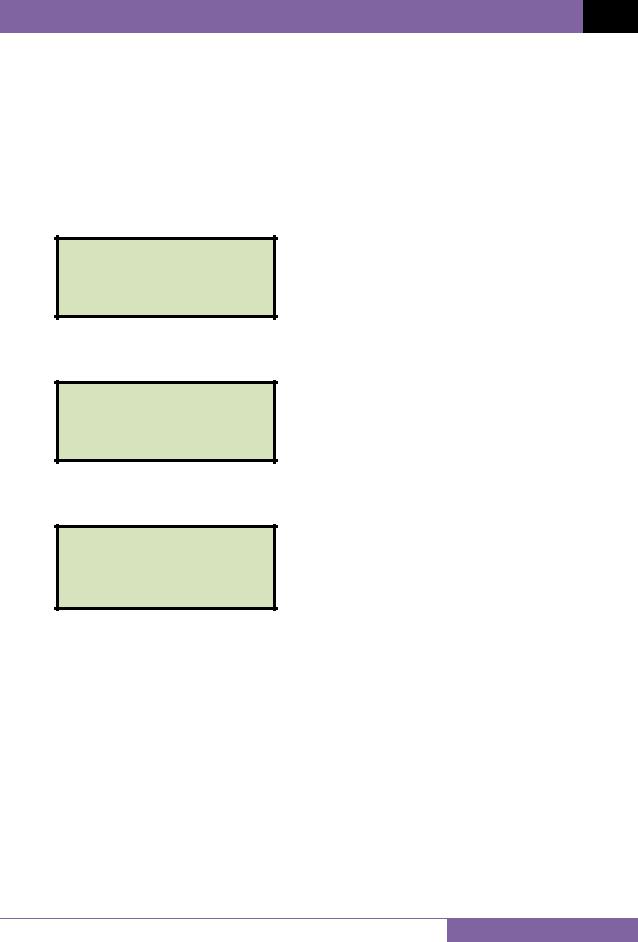
EZCT-2000 USER’S MANUAL REV 3
3.3Performing Tests
3.3.1. Entering Test Record Header Information
You can enter the test record header information before performing tests. The record header includes identifying information such as the company, station, circuit, model number, etc. Once the header information has been entered, it will apply to all subsequent test records. To enter the header information:
a.When the unit is turned on and the firmware has been loaded, you will be presented with the “START-UP” menu as shown below:
1. RUN TEST 09/24/09
2. SETUP |
08:20:19 |
3.TEST PLANS
4.DIAGNOSTIC
Press the [2] key (SETUP).
b.The following screen will be displayed:
1.RECORD ID
2.PRINT RECORD
3.RESTORE RECORD
4.NEXT PAGE
Press the [1] key (RECORD ID)
c. The following screen will be displayed:
COMPANY:
↑/↓ TO POSITION “ENTER” TO ACCEPT
Type the company name using the alpha-numeric keypad.
When pressing a key, the corresponding number on the key will be displayed first. Pressing the key again will display the first letter on the key. Pressing the key again will
display the second letter on the key. For example, to type the letter “A”, you must press the [2] key twice. To erase the character at the cursor position, press the [CLEAR] key. Press the [PAPER Contrast] key to move to the next character. Press the [PAPERContrast] key to move to the previous character. Press the [ENTER] key when you
are done typing the company name.
12
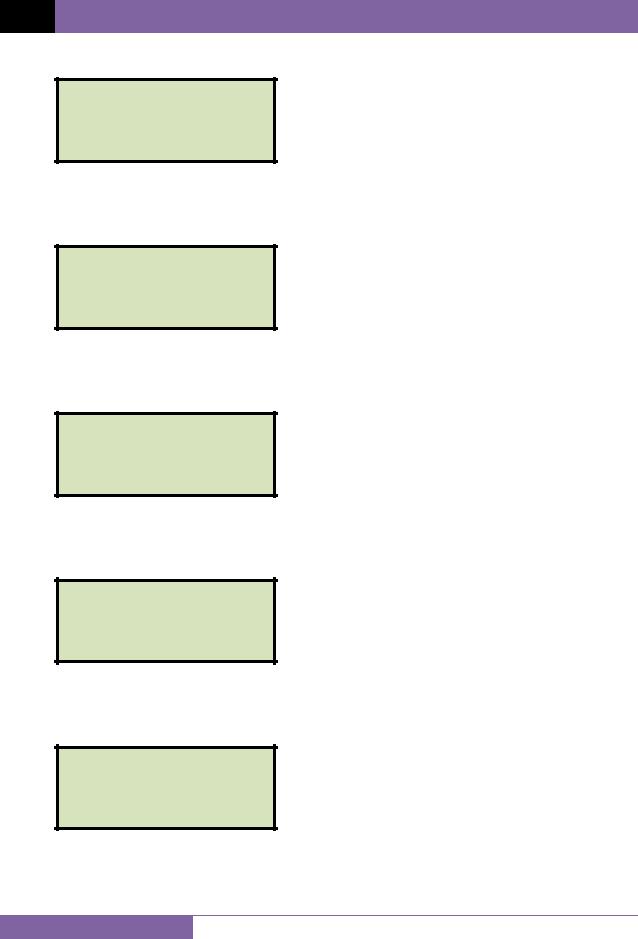
REV 3 EZCT-2000 USER’S MANUAL
d. The following screen will be displayed:
STATION:
↑/↓ TO POSITION “ENTER” TO ACCEPT
Type the station name using the alpha-numeric keypad and then press the [ENTER] key.
e. The following screen will be displayed:
CIRCUIT:
↑/↓ TO POSITION “ENTER” TO ACCEPT
Type the circuit information using the alpha-numeric keypad and then press the
[ENTER] key.
f. The following screen will be displayed:
MANUFACTURER:
↑/↓ TO POSITION “ENTER” TO ACCEPT
Type the manufacturer name using the alpha-numeric keypad and then press the
[ENTER] key.
g. The following screen will be displayed:
MODEL:
↑/↓ TO POSITION “ENTER” TO ACCEPT
Type the model information using the alpha-numeric keypad and then press the
[ENTER] key.
h. The following screen will be displayed:
SERIAL NUMBER:
↑/↓ TO POSITION “ENTER” TO ACCEPT
Type the serial number using the alpha-numeric keypad and then press the [ENTER] key.
13
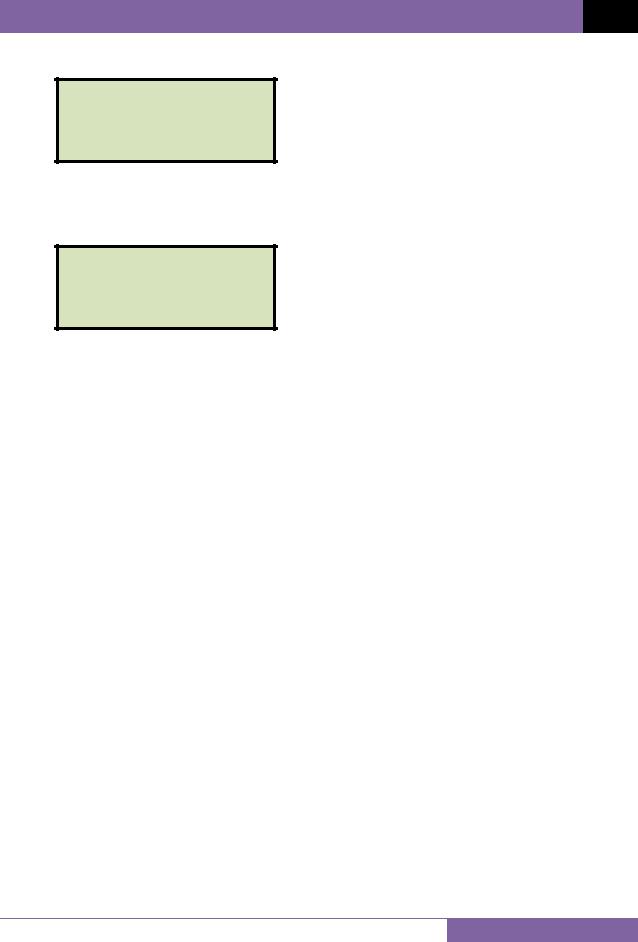
EZCT-2000 USER’S MANUAL REV 3
i. The following screen will be displayed:
COMMENTS:
↑/↓ TO POSITION “ENTER” TO ACCEPT
Enter any relevant comments using the alpha-numeric keypad and then press the
[ENTER] key.
j. The following screen will be displayed:
OPERATOR:
↑/↓ TO POSITION “ENTER” TO ACCEPT
Type the operator’s name using the alpha-numeric keypad and then press the [ENTER] key. All header information will be saved, and you will be returned to the “START-UP” menu.
14
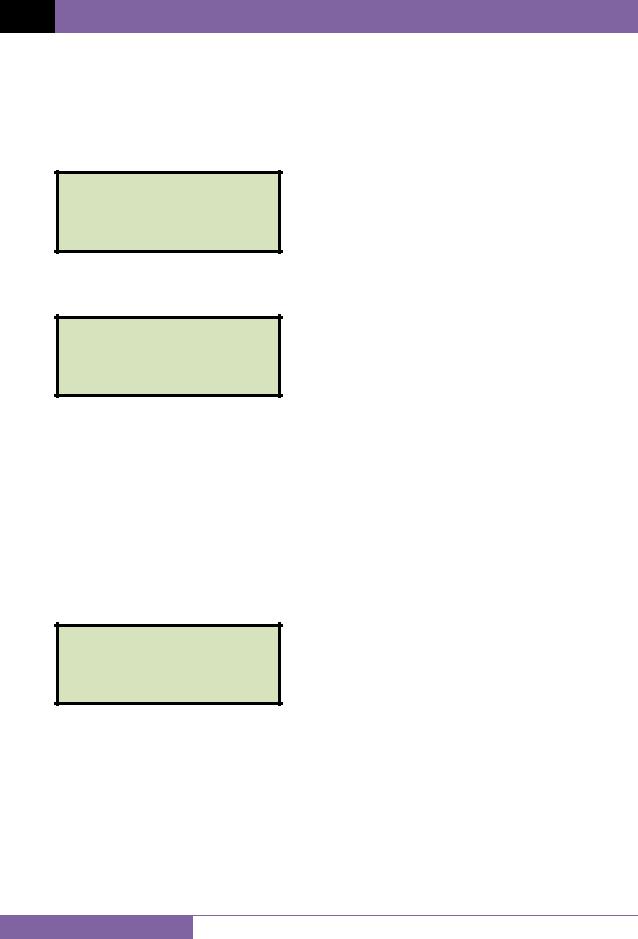
REV 3 EZCT-2000 USER’S MANUAL
3.3.2. Performing Resistance, Excitation, and Ratio Tests
The following procedure describes the general steps for performing excitation, resistance, and ratio tests.
a.When the EZCT-2000 is turned on, it will first go through a start-up cycle and load the firmware. Then the “START-UP” menu will be displayed as shown below:
1. RUN TEST 09/24/09
2. SETUP |
08:20:19 |
3.TEST PLANS
4.DIAGNOSTIC
Press the [1] key (RUN TEST) to start a test.
b.The following screen will be displayed:
1.RES, EXCIT & RATIO
2.EXCITATION & RATIO
3.EXCITATION ONLY
4.RATIO 5.RES,EXC
Select the test type by pressing the corresponding key ([1] - [5])
c. The following screen will be displayed:
SELECT TAP: |
|
|
|
1. |
X1-X2 |
3. |
X1-X4 |
2. |
X1-X3 |
4. |
X1-X5 |
5. |
NEXT PAGE |
|
|
|
|
|
|
Select the tap connection by pressing the corresponding key ([1] - [4]). If the tap connection is not listed, press the [5] key to view the next page of options.
d. If the selected test included an excitation test, the following screen will be displayed:
SELECT VOLTAGE RANGE
1. |
50V |
4. |
1200V |
2. |
300V |
5. |
2000V |
3. |
500V |
|
|
Select a test voltage range by pressing the corresponding key ([1] - [5]).
15
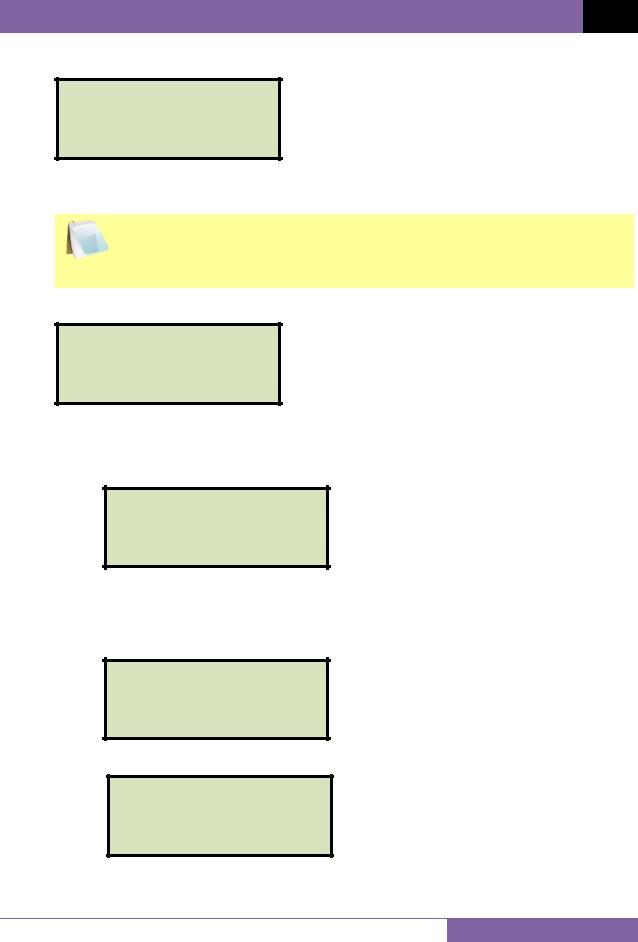
EZCT-2000 USER’S MANUAL REV 3
e. If the selected test included an excitation test, the following screen will be displayed:
SET TEST CURRENT:
1. |
0.2A |
2. |
0.5A |
3. |
1A |
4. |
2A |
5. |
5A |
6. |
10A |
Select the maximum test current for the excitation test by pressing the corresponding key ([1] - [6]).
Most CT’s will saturate before the excitation current reaches 1A. To reduce stress on CT’s, a maximum test current of 1A is recommended.
NOTE
f. If the selected test included a ratio test, the following screen will be displayed:
XFMR NAME PLATE RAT.
1.YES
2.NO
1.YES
Press the [1] key if you would like to enter the CT nameplate values. The following screen will be displayed:
ENTER PLATE RATIO: 0 :
Type the first number using the keypad.
You can press the [CLEAR] key to restart a field entry if necessary.
Press the [ENTER] key. The following screen will be displayed:
ENTER PLATE RATIO: 1000 : 0.0
Type the second number using the keypad. The screen will be updated as shown:
ENTER PLATE RATIO: 1000 : 5.0
Press the [ENTER] key. Continue to step g.
16
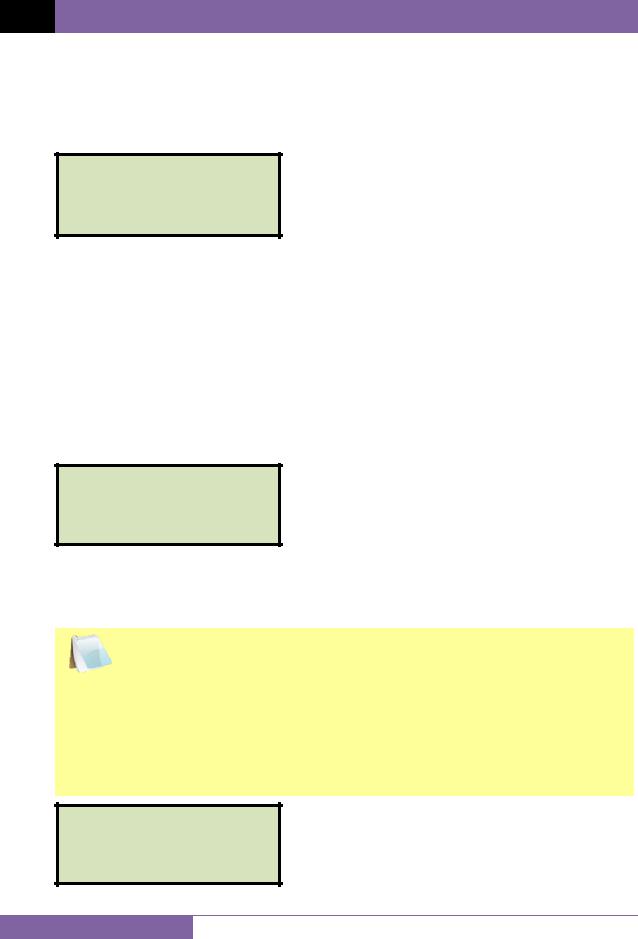
REV 3 EZCT-2000 USER’S MANUAL
2.NO
Press the [2] key if you do not want to enter the CT nameplate values. Continue to step g.
g.The following screen will be displayed:
ENTER TEST 1 NOTE:
↑/↓ TO POSITION “ENTER” TO ACCEPT
Use the alpha-numeric keys on the keypad to enter a test note. The test note field is 20 characters long. One test note can be saved for each test.
When pressing a key, the corresponding number on the key will be displayed first. Pressing the key again will display the first letter on the key. Pressing the key again will
display the second letter on the key. For example, to type the letter “A”, you must press the [2] key twice. To erase the character at the cursor position, press the [CLEAR] key. Press the [PAPER Contrast] button to move to the next character. Press the [PAPER Contrast] key to move to the previous character. Press the [ENTER] key
when you are done typing the note.
h. The following screen will be displayed if the selected test included a resistance test:
CALC ERR VS BURDEN?
1.YES
2.NO
Press the [1] key (YES). Selecting this option will print the current ratio error table as part of the tabulated test results. Please see item 19 in Figure 6.
i.The following screen will be displayed:
If you had selected a test current greater than 1 Amp in step e, the following screen will be displayed:
NOTE |
SATURATION |
CUR WILL |
|
BE REDUCED |
TO 1 AMP. |
|
(PRESS ANY |
KEY...) |
|
|
|
Press any key to continue.
ENTER BURDEN VA:
(500.0 MAX)
0.0
Type the burden value using the keypad and then press the [ENTER] key.
17
